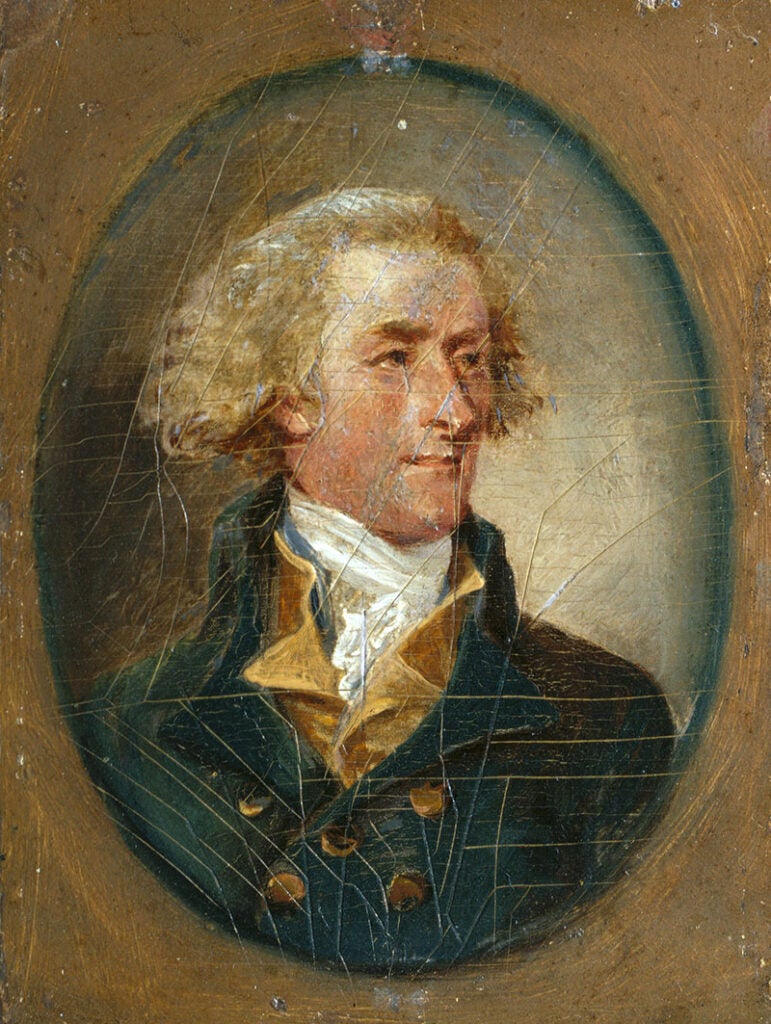Mark Sanford was governor of South Carolina and a rising star in national Republican politics when a bizarre disappearance uncovered that the governor was having an extramarital affair that sent his career into a tailspin.
Sanford told his staff in June of 2009 that he was planning to hike the Appalachian Trail and then disappeared without his security detail and refused to answer his cell phone.
Aides began to worry about his safety and people began asking, “Where is the governor?” Not even his wife Jenny seemed to know of his whereabouts, reporting that the governor had not even called the family on Father’s Day, according to multiple news reports.
When Sanford emerged a week later, he confessed that he had actually gone to Argentina to be with his lover, María Belén Chapur.
That tailspin didn’t last long as Sanford continued to get reelected and briefly ran for president in 2019. While Sanford did face plenty of blowback, his career was salvaged mainly because attitudes of the public regarding politicians’ private lives have largely changed.
Sex and American politics have gone hand-in-hand nearly since the founding of the country.
Letters between John Adams and his wife Abigail prove how devoted the couple were to their marriage and each other; but that still did not stop Adams’ opponents branding the chaste and religious man a “hermaphrodite,” according to the National Archives.

Meanwhile, Adams’ major opponent, Thomas Jefferson, held a secret that, if known, would have blown his political career apart. Near the same time that Jefferson wrote that “all men are created equal,” he was taking a shine to a slave woman on his plantation, Sally Hemings.
Historian Annette Gordon-Reed compiled all the birth records on Jefferson’s plantation, Monticello, and writes in her book, “The Hemingses of Monticello,” that Jefferson and Hemings had six children together. DNA evidence has since proven Gordon-Reed correct and Jefferson’s descendants have accepted the results as legitimate.
Should that information had been made public in Jefferson’s lifetime, it might have opened up a whole new discussion about the morality of slavery, whether a 14-year-old slave can actually give sexual consent and whether a child born to a slave master could legally remain a slave.
Given the public attitudes at the time, should Jefferson had been exposed, it is likely that he would not have made it to the presidency.
Over time, politicians were accused of being bigamists and fathering out-of-wedlock children; however, most were keen to keep their private lives ultra private.
Photography at the White House during the Franklin Roosevelt era was severely curtailed, not just to mask the president’s illnesses but to keep prying eyes away from the first couple as both were having dalliances on the side.
President Ike Eisenhower was another one of those politicians that kept the press at bay when it came to his private life. Eisenhower was seen as a grandfatherly figure above reproach, and his wife Mamie was considered the epitome of style and grace.
MORE: Congressman Rick Allen visits A.R. Johnson Magnet School, watches rocket demo
MORE: Augusta University hosts speakers’ tour on healing from violence
When rumors abounded of an affair between then General Eisenhower and his driver, Capt. Kay Summersby in the final year of World War II, Eisenhower moved to quash the rumors.
Faced with a possible political scandal, Eisenhower and Summersby both vigorously denied the claims.
However, on her deathbed, Summersby finally admitted the truth.
In her final memoir, “Past Forgetting: My Love Affair With Dwight D. Eisenhower,” she described a burgeoning love that evolved between the two while they were overseas fighting the war.
“I feel free to talk about it now. The General is dead. I am dying. When I wrote Eisenhower was my boss in 1948, I ommitted (sic) many things, changed some details, glossed over others to disguise as best I could the intimacy that had grown between General Eisenhower and me. It was better that way.”
President John Kennedy’s extramarital affairs are the stuff of legend; after all, it was the “Swinging Sixties.”

According to JFK biographer, James Patterson, Kennedy’s wife was well aware of her husband’s infidelities, but out of respect for the presidency and to protect her children, she chose to take it all in stride, telling her sister Lee that she was taking her children on vacation and would not attend the president’s 45th birthday party at Madison Square Gardens.
“Life’s too short to worry about Marilyn Monroe,” Jackie Kennedy purportedly said.
However, the public attitude seemed to shift over time and people began to put more value on what the politicians achieved in office, rather than blemishes on their personal record.
Jimmy Carter proved to be a pious president, saying that he had never cheated on his wife, but had “committed lust in his heart.” Yet, for all his piety, Carter proved to many that piety does not have much to do with successfully running a government.
When Ronald Reagan became the front runner in the 1979 election, many Evangelicals in the South chafed at the possibility that a divorcee would be elected to the highest office in the land, but they voted for him anyway.
It would be Bill Clinton who seemed to put the job performance versus morality issue to rest.
Clinton was a known philanderer when he won office in 1992; however, despite losing the House of Representatives to the Republicans in 1994, the country had the first surplus on the budget books in ages, the economy was roaring and the Cold War was becoming a distant memory.

Salacious articles about cigars and other Oval Office shenanigans emerged, and the president was finally forced to admit “an inappropriate relationship” with intern Monica Lewensky.
In the face of impeachment, Clinton seemed to barely notice and, instead, promised the country he was at work for the American people and he was letting his lawyers handle the political process.
Ironically, it would not be Clinton who would be turned out of office, but the Republican Speaker of the House, Newt Gingrich, who would have to step down from his position when his own adultery was exposed.
Gingrich was not necessarily forced out over his private affair, but over his hypocrisy.
Like Clinton, in the midst of the cheating scandal, Sanford faced impeachment, but refused to resign from office. Even under censure, Sanford continued on in office as if nothing had happened.
Sandford later won back his old Congressional seat and became a rather outspoken critic of President Donald Trump; a man whose past payoffs to porn stars and leaked comments about women’s body parts did not prevent him from winning the presidency.
Sanford briefly launched a campaign to run against Trump in 2019, but that effort was short-lived.
Recently, decades-old stories of infidelity committed by Sanford’s anointed successor as South Carolina Governor, Nikki Haley re-emerged, as she is currently running for the Republican nomination for president; however, the news made no splashes and only elicited yawns.
Since his abandoned presidential run, Sanford has remained largely silent; so, the next move for Sanford, only Sanford knows.
Scott Hudson is the Senior Investigative Reporter and Editorial Page Editor for The Augusta Press. Reach him at scott@theaugustapress.com












